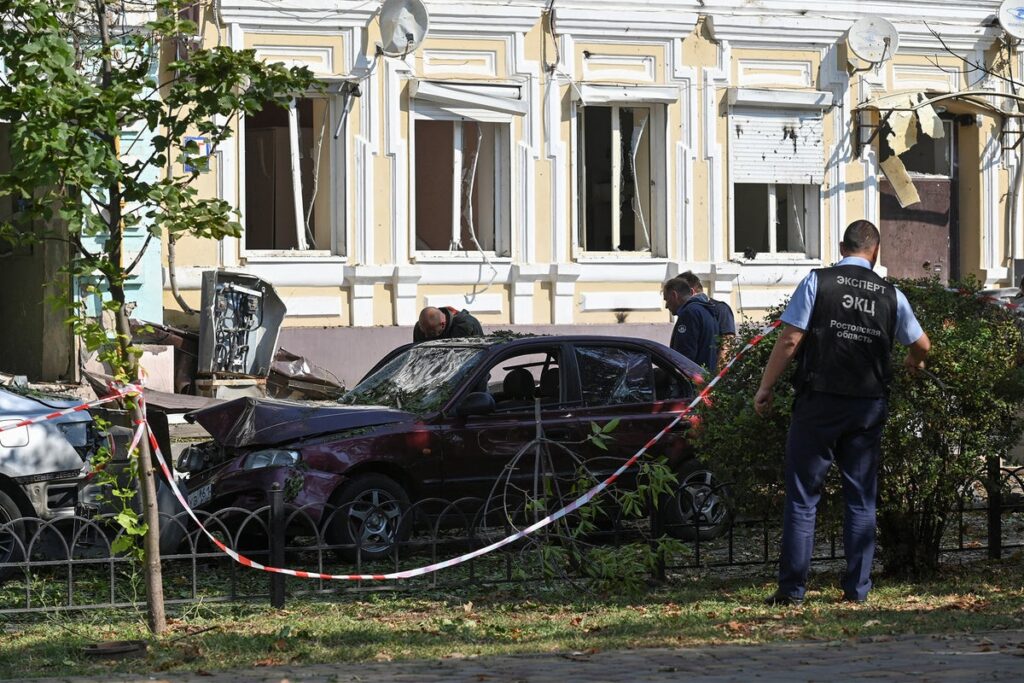Newsmatro

A new defense minister, increased U.S. support, and an additional $1 billion in aid have raised hopes in Ukraine, but experts remain divided on whether these developments will significantly affect the ongoing conflict.
Ukrainian Foreign Minister Dmytro Kuleba expressed confidence that Ukraine and the U.S. are committed to standing together until victory, following Secretary of State Antony Blinken’s announcement of a $1 billion aid package in Kyiv. Blinken also noted the acceleration of progress in Ukraine’s counteroffensive, stating that the aid package would bolster these efforts.
However, not all experts share this optimism. Steven Myers, an Air Force veteran and Russia expert, believes that the Ukrainian struggle against Russia will remain challenging despite the recent developments. Myers argues that there is no effective counterstrategy available to Ukraine and that the situation is dire.
According to Myers, Ukraine may present progress to the West, but the cost in Ukrainian lives is often omitted. He highlights that Ukrainian forays into Russian territory often result in retaliation, with Russian counterstrikes that are strategically designed to trap Ukrainian forces.
Sean McFate, a professor at Syracuse University and a senior fellow at the Atlantic Council think tank, shares Myers’ skepticism. He believes that changing defense ministers and conventional warfare tactics will not alter the course of the conflict. McFate contends that modern wars are no longer won by seizing territory and defeating enemy troops as in World War II but rather involve controlling information and using mercenary troops.
Recent developments in the conflict include:
Ukrainian officials reporting that around 90% of Ukrainian prisoners of war have faced abuse, torture, sexual violence, or threats, with efforts to halt these unlawful practices discussed with the U.N. special rapporteur on torture.
An armed Ukrainian drone crashing in Russia’s Volgograd region near the defense ministry’s southern district logistics center, with no reported injuries or damage.
The Ukrainian Air Force posting a video of a German-supplied Gepard anti-aircraft artillery system reportedly shooting down armed Iranian-built drones used by Russia.
The U.S. and Britain imposing sanctions on 11 individuals linked to the Trickbot Russian cybercrime network responsible for targeting U.S. government and company systems.
A Russian drone attack in the southern Ukrainian port city of Odesa causing injuries to two truck drivers, the destruction of a grain elevator, an administrative building, and damage to several homes.
In a separate development, the Pentagon has announced a $600 million order for military contractors to support the Ukrainian military. This includes long-range artillery ammunition, air defense equipment, and mine-clearing gear, which will take months to produce and ship. The total aid provided by the Biden administration to Ukraine since Russia’s invasion in February 2022 now exceeds $43 billion.
Secretary of State Antony Blinken, during his visit to Ukraine, emphasized the importance of clearing mines and unexploded ordnance. He highlighted the resilience of Ukrainians working to recover land taken from them, with the latest aid package including $90.5 million in additional demining assistance.
Amidst the ongoing conflict, private sales of weapons and ammunition to Ukraine have surged, involving a “shadowy system” of gun brokers and exporters. While most of the support comes from U.S. military stocks, private deals have gained importance in meeting Ukraine’s immediate needs during the conflict. This has led to an increase in demand for private arms transactions, with the State Department rapidly approving deals destined for Ukraine.
Jim Bartlett, an attorney specializing in international arms transactions, noted that private U.S. businesses are playing a vital role in arming Ukraine and are receiving preferential treatment for expediting arms deliveries to Ukraine.